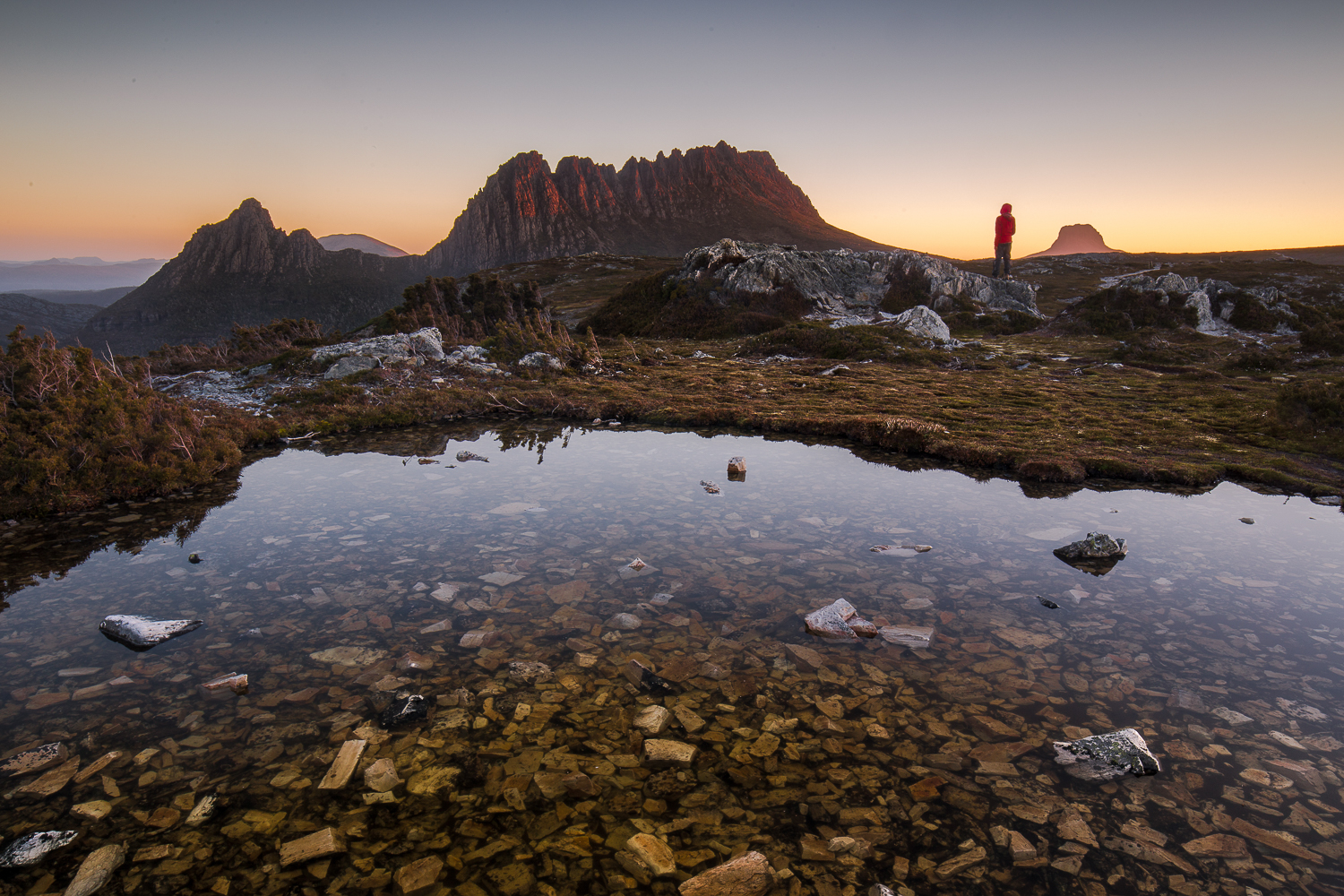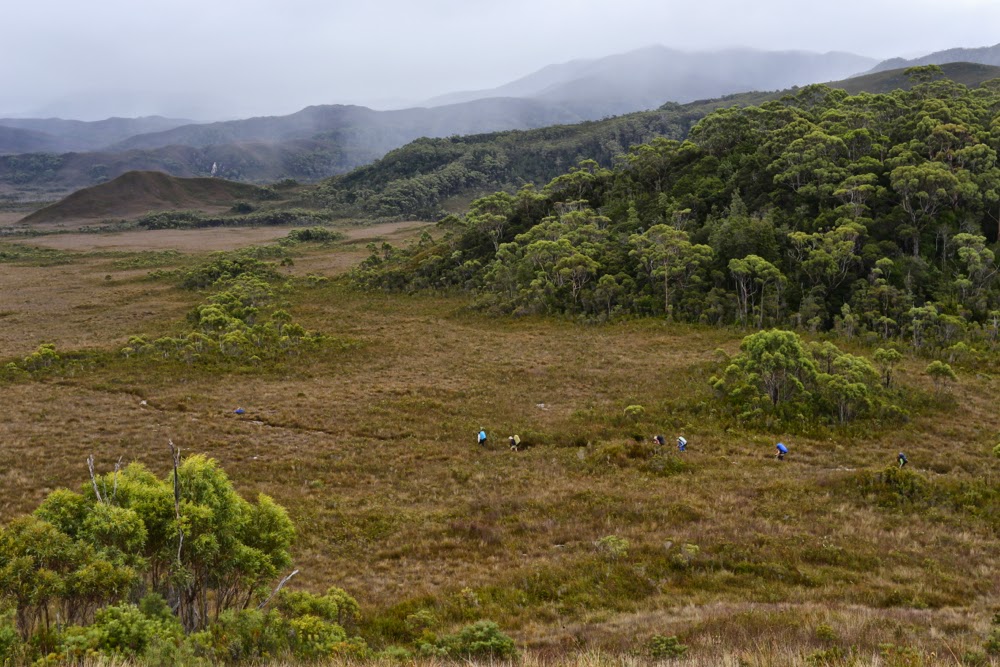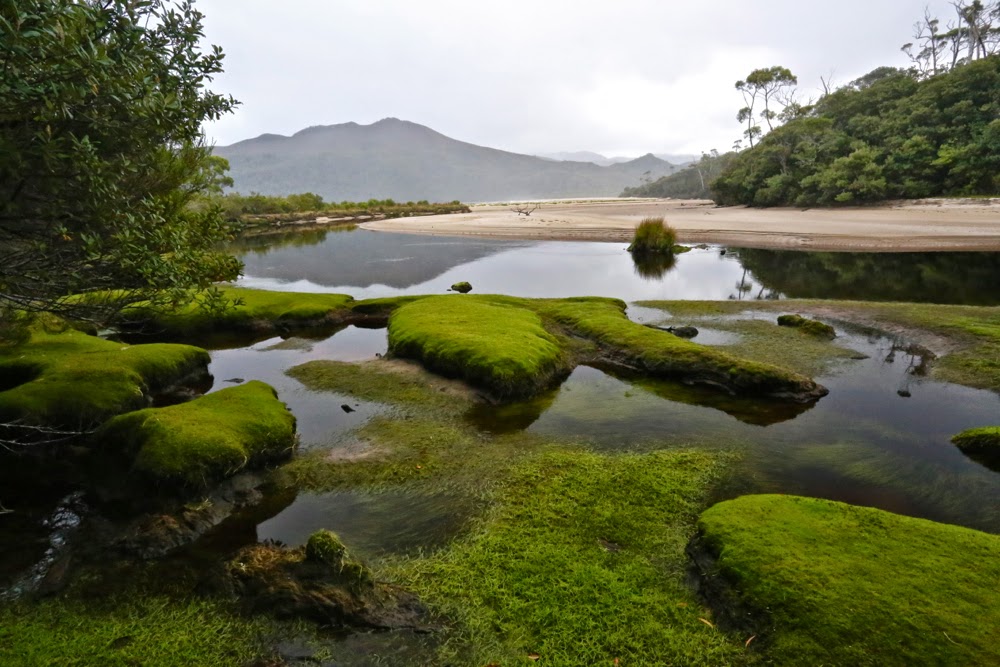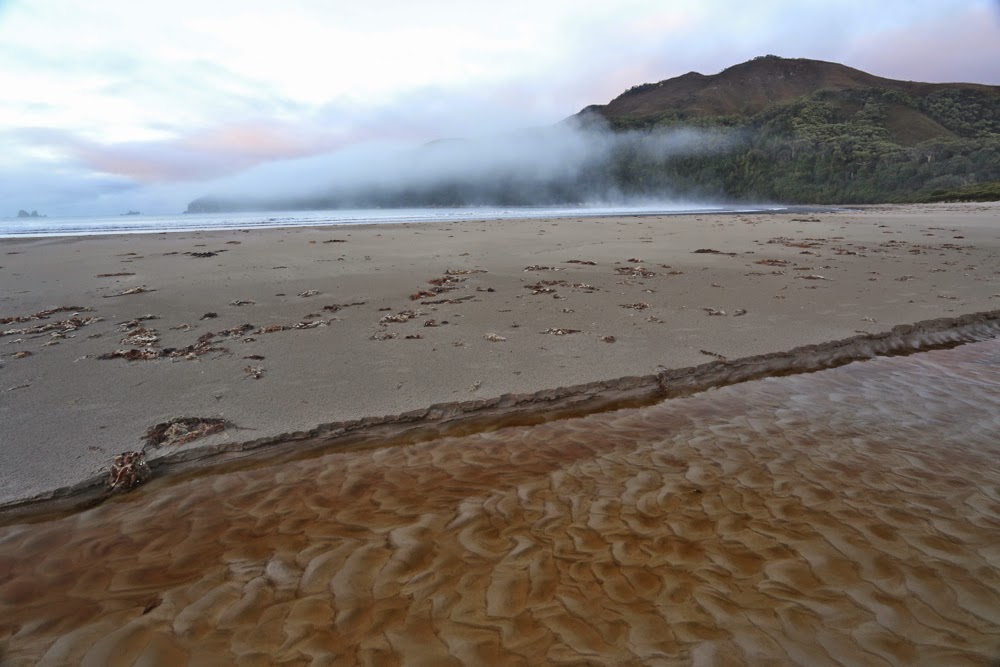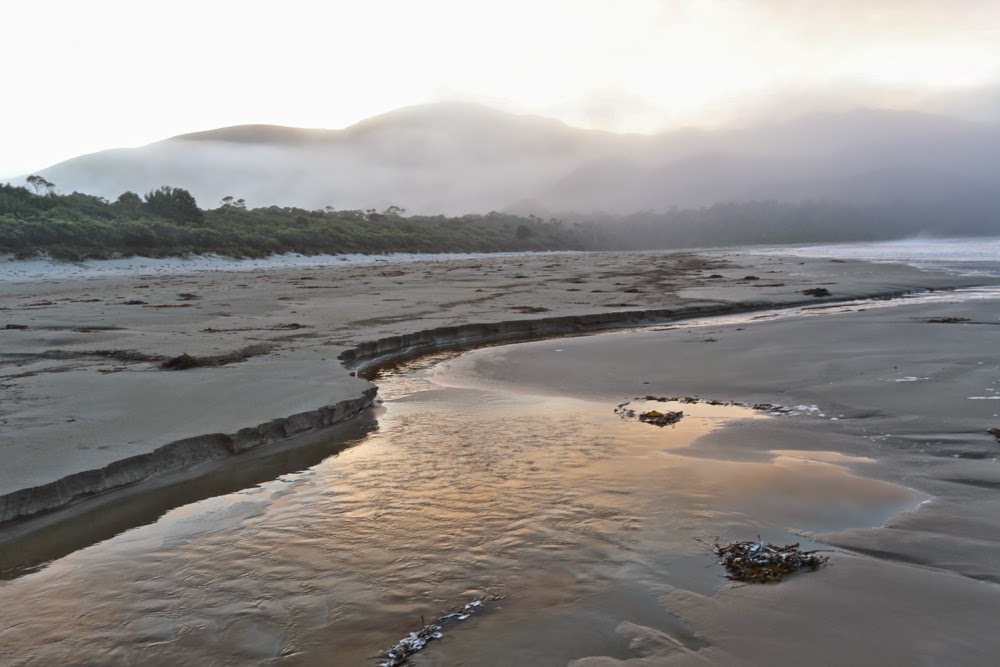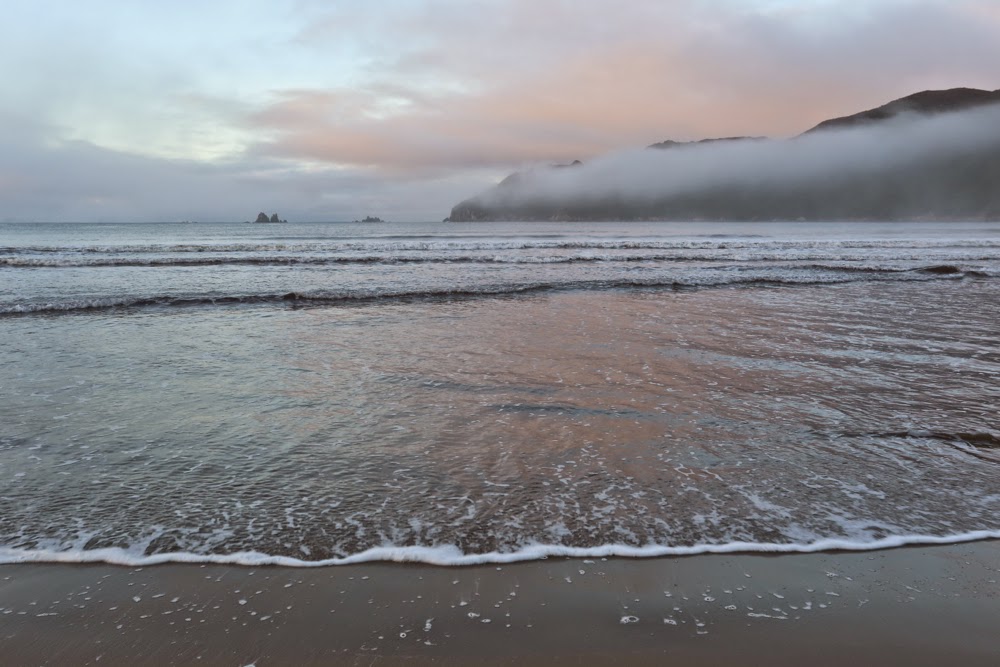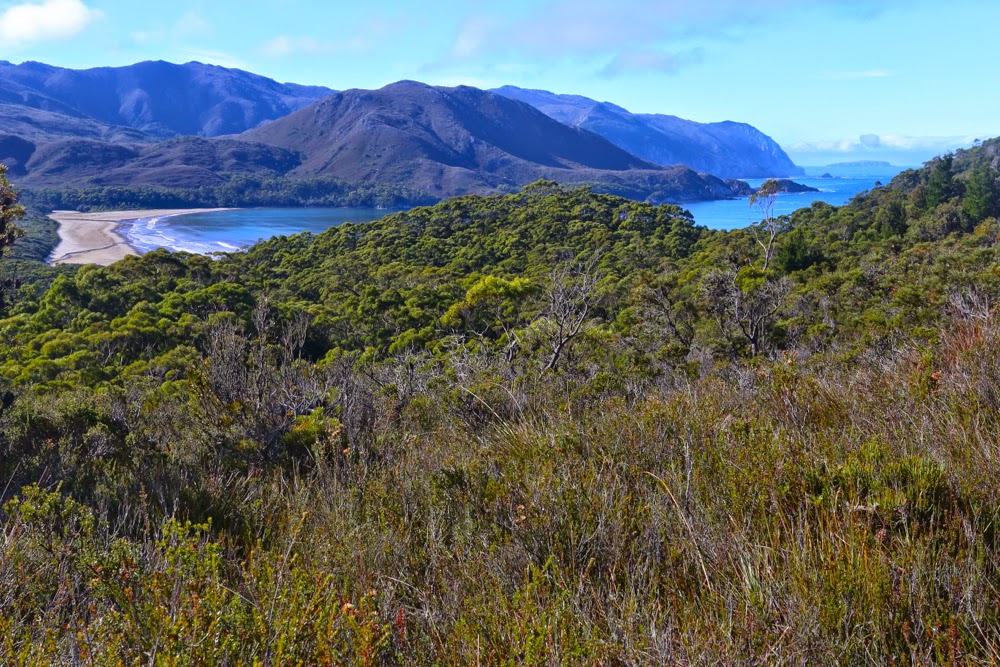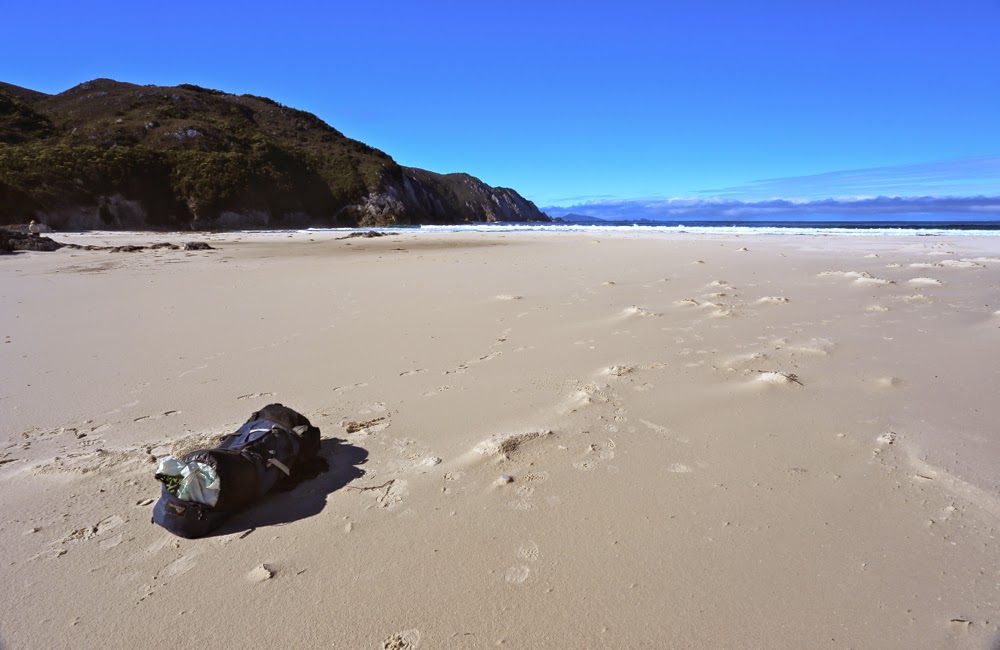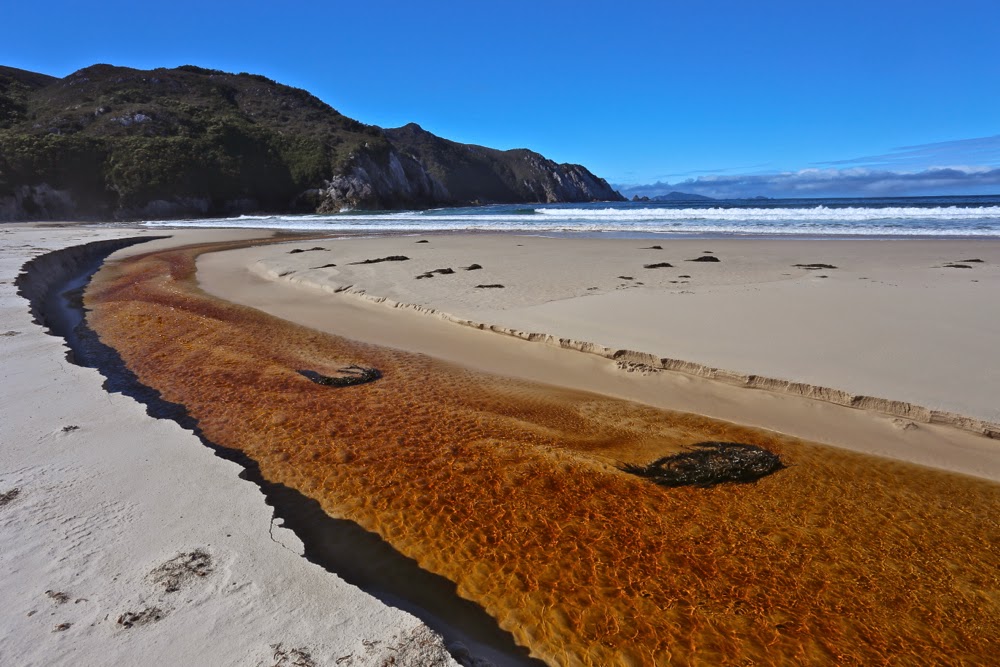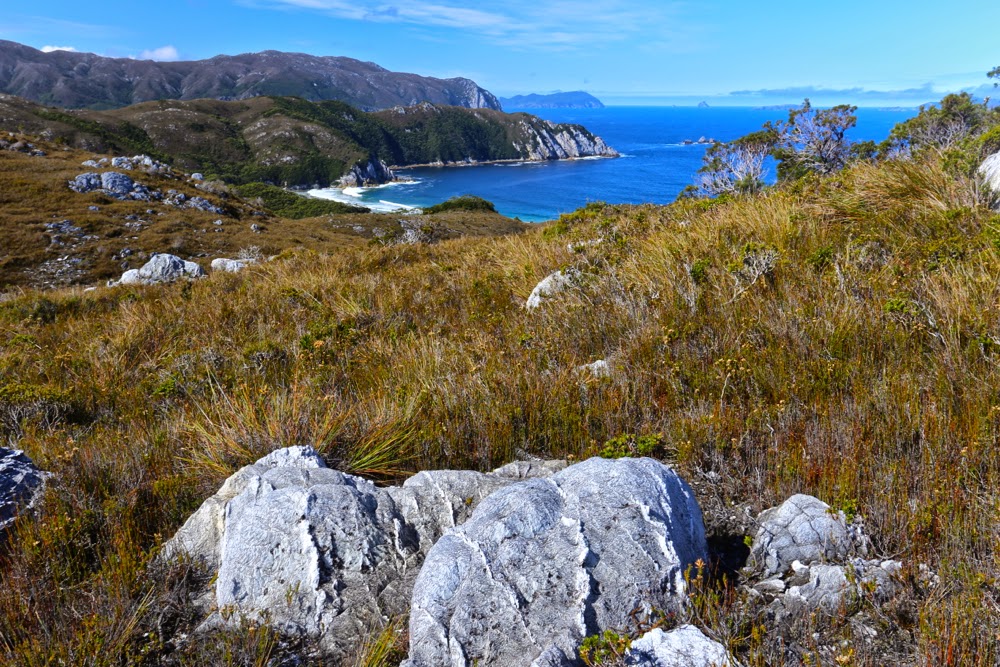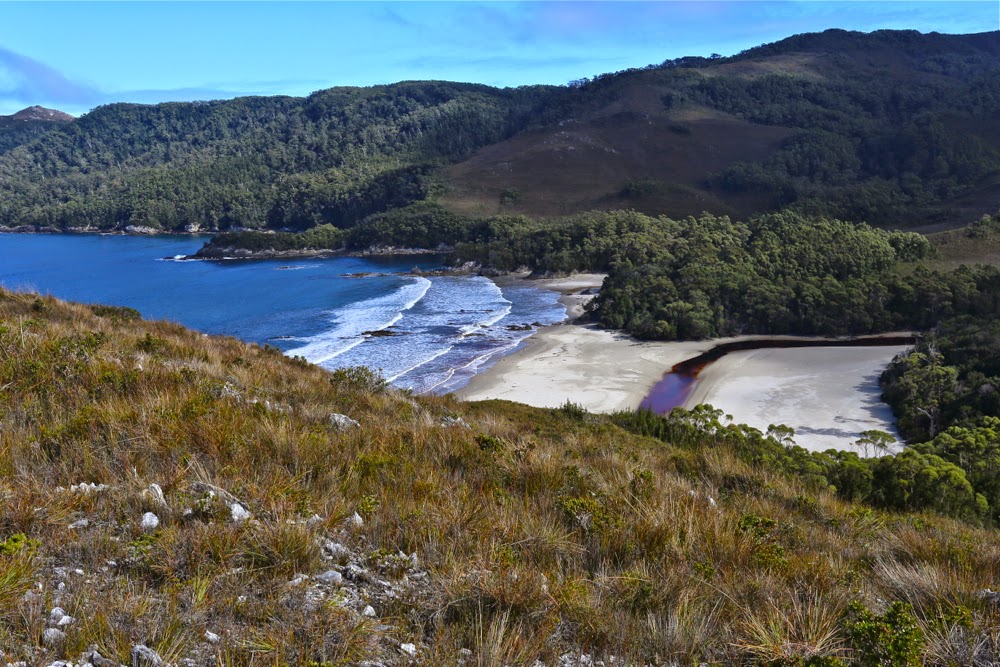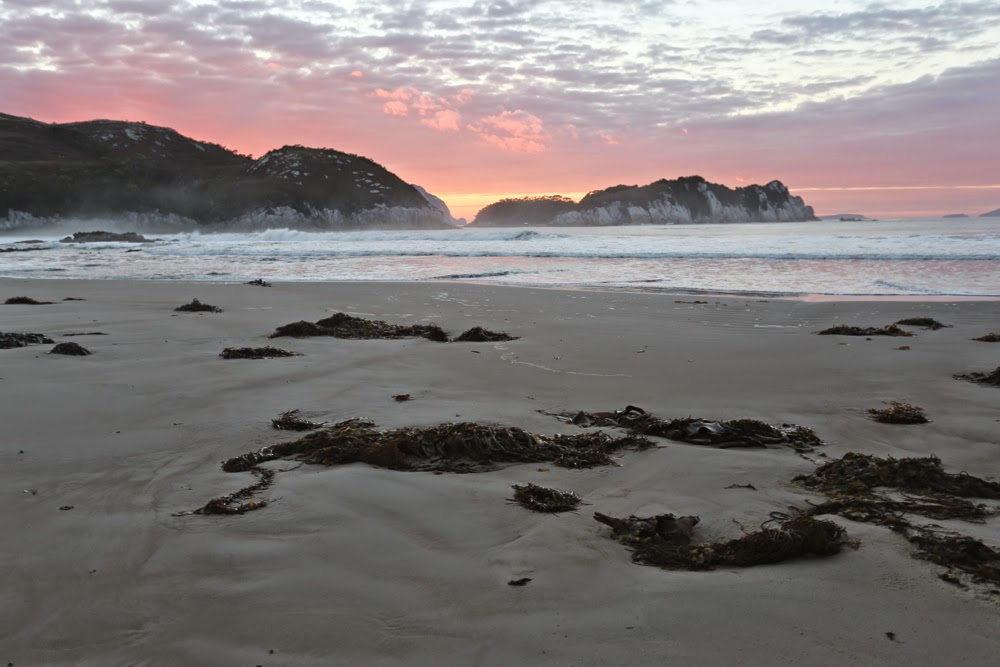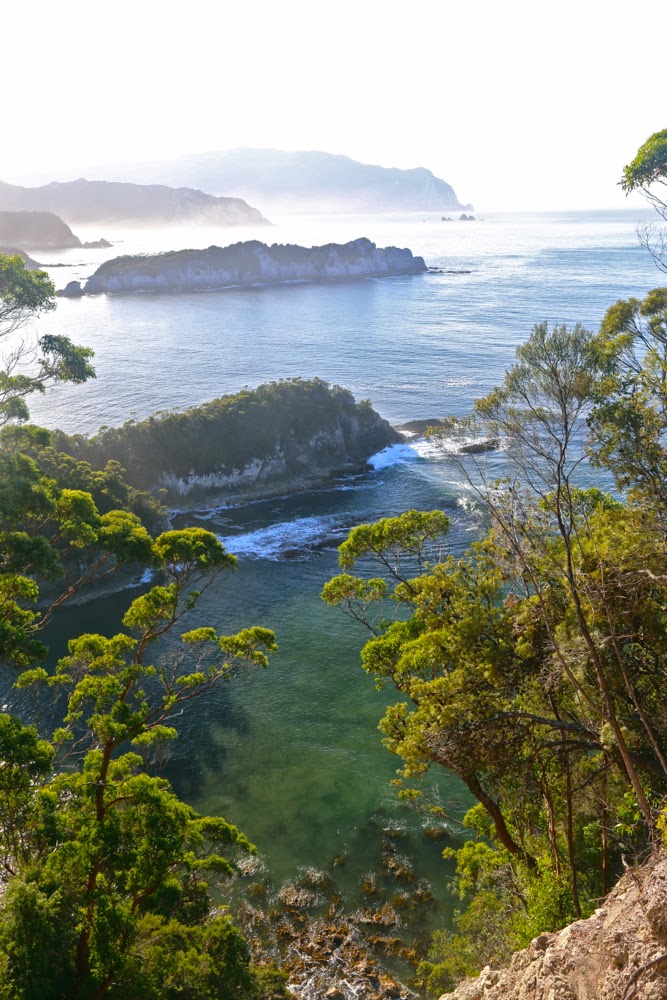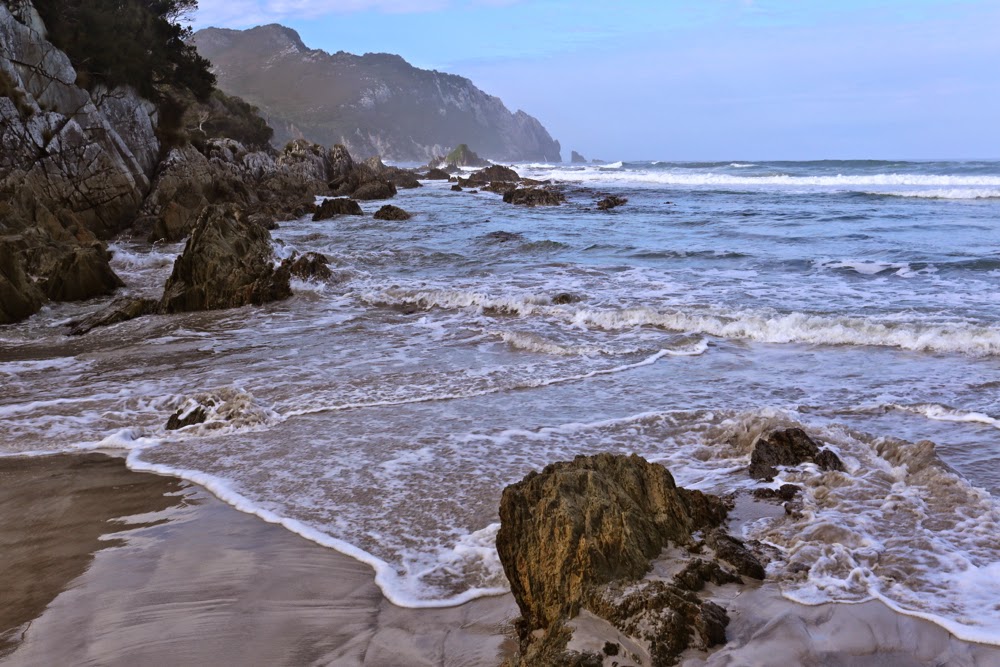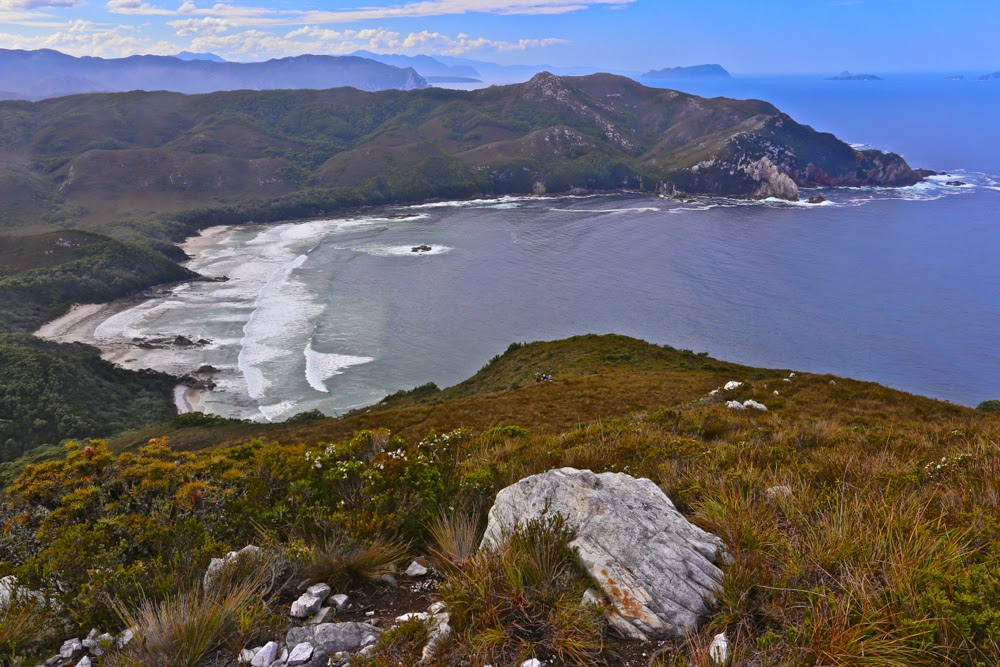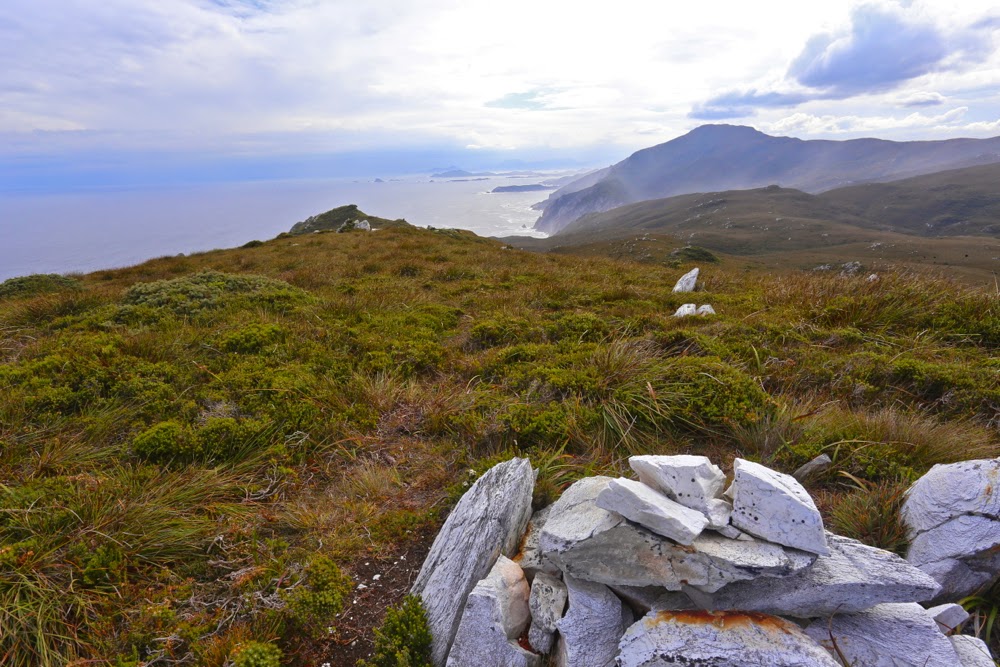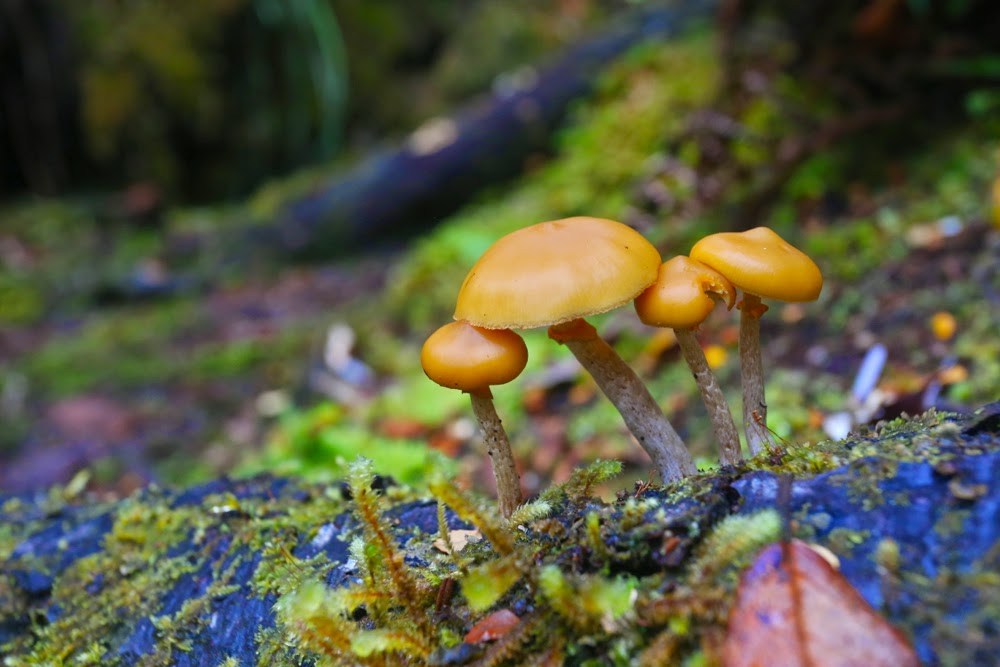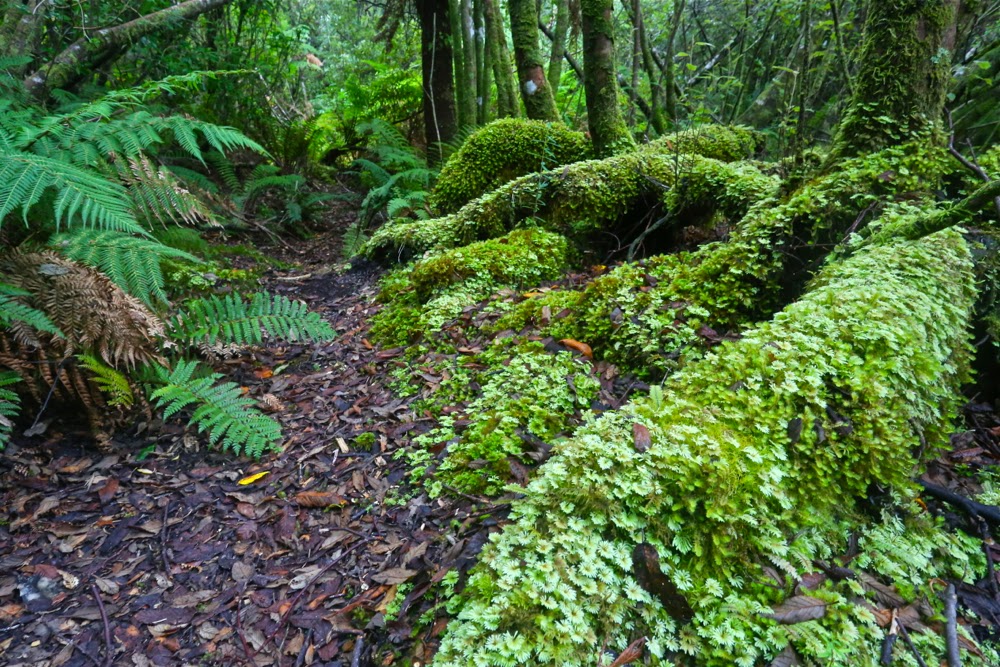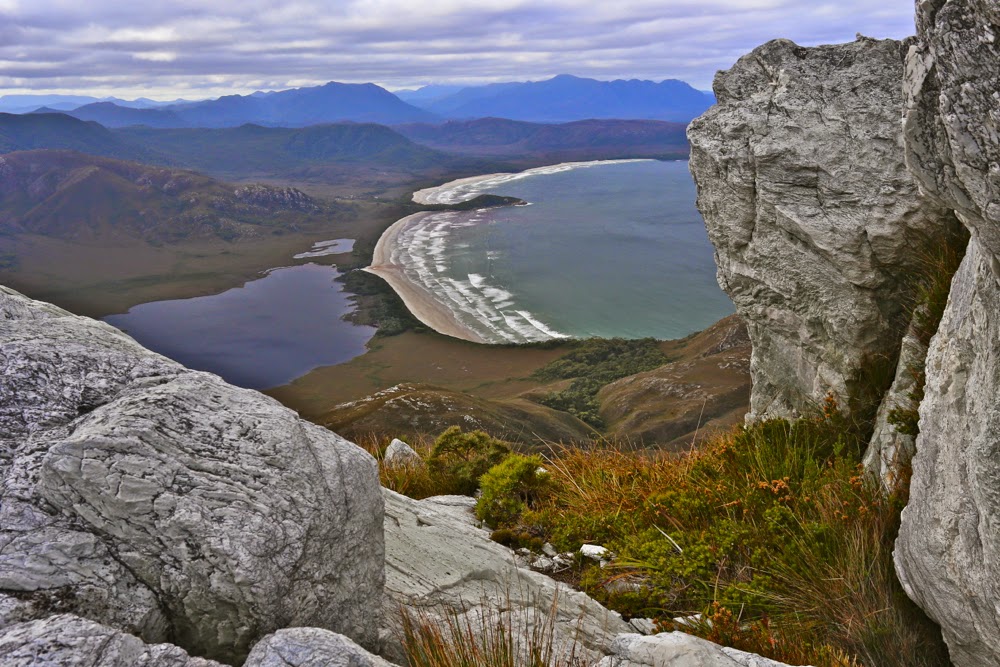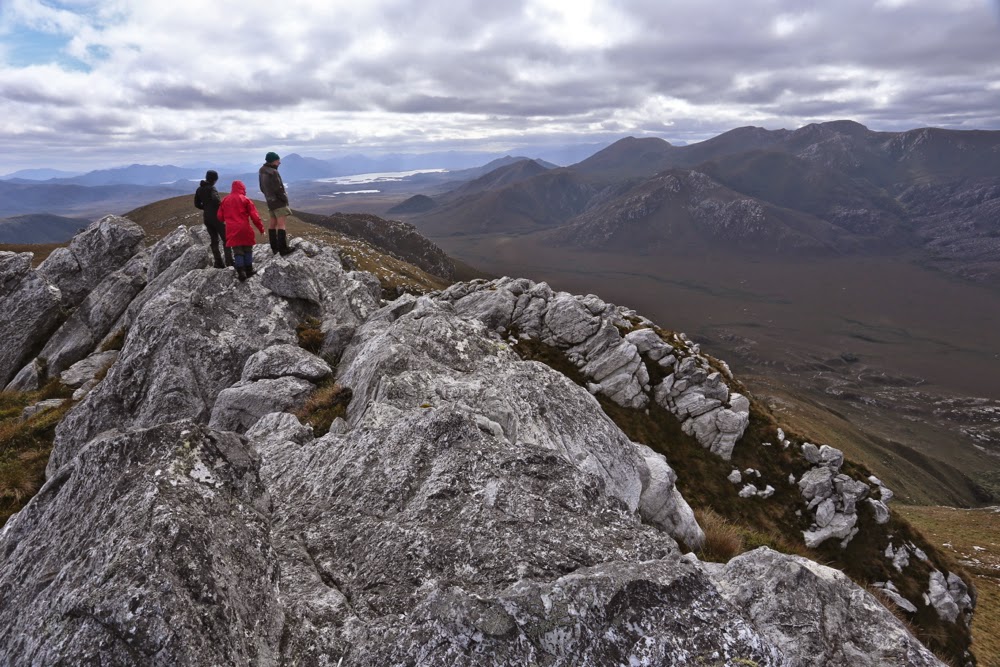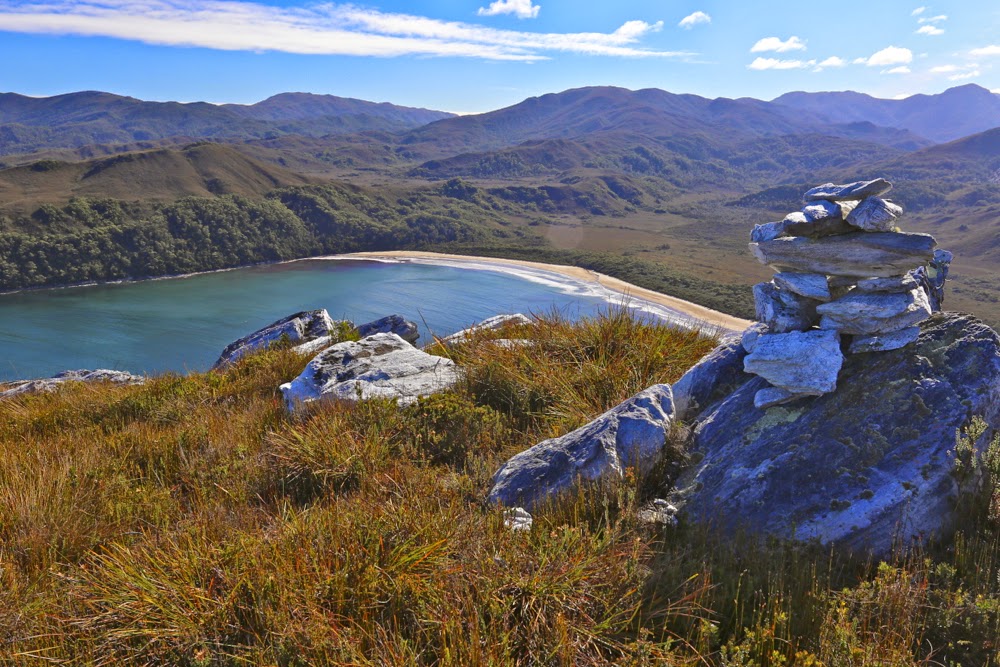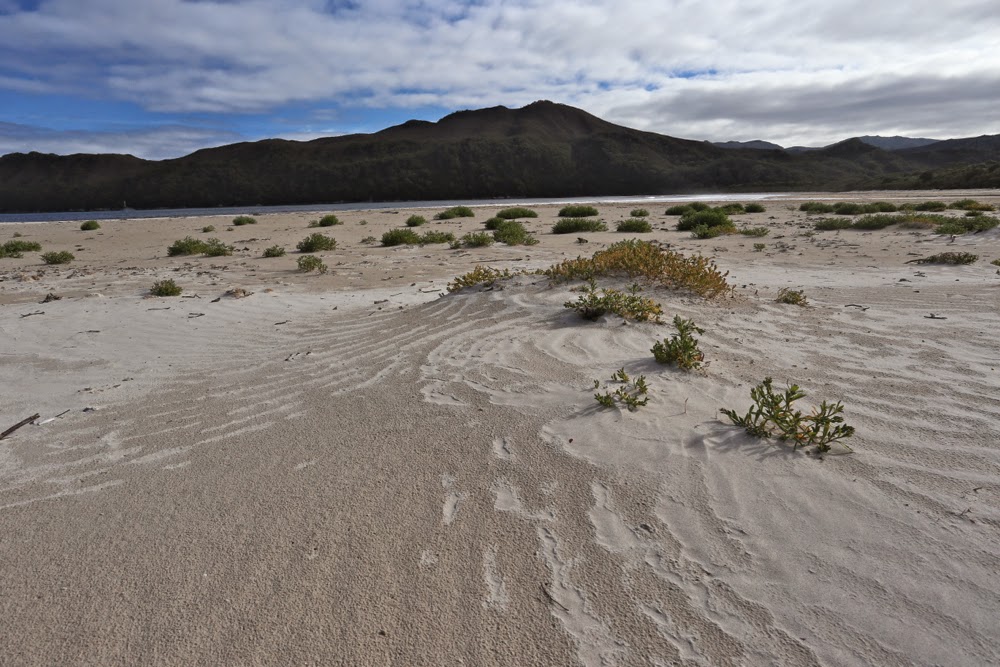South West Cape Track: hard or easy? It depends on your expectations as created by your experience and the context within which the word is used. Pictured are the others walking along the path that most found easy. I added challenge by climbing little thises and thats along the way. Warning: the blog this week is not easy :-).
I stood on the summit of New Harbour Range, mesmerised by the view, my spirit reaching out towards Antarctica to the south, South America to the West, New Zealand to the east. Infinite space; infinite glory; infinite peace. My being was no longer coterminous with my epidermal layer but transcended to a space beyond, which could not be numbered. One of the three companions who had climbed with me turned to me and said, most aptly: “You know, I’m not a religious person, Louise, but this here is the nearest I get to a religious experience.”
He is, of course, so right, but his words had a bitter sting in our current political context, as we bushwalkers are, basically, fighting for our right to have experiences like this in this area we called wilderness, to keep these areas accessible yet untarnished by the sound of jet skis, the sight of grand luxury tourist hotels and cable cars. Liberal governments, both state and federal, make the assumption that spiritual connection to the land – a transcendental experience that is prompted by place – is something that only indigenous people can experience, and that if a non-indigenous person has what might be called a soul, then they should go off to a dark and musty church building made by human hands in order to connect with the eternal. I am sure there must be somewhere bushwalkers who are only there because it’s “sport” and a challenge to be had in nature, but the ones I mix with are there in the wild places because it is precisely in such infinite beauty that we find freedom and peace, and that these are things we need to keep happy and sane.
A pack. A wild beach. Does it get any better than that? (Hidden Bay).
Denny King airstrip at Melaleuca, ready to venture into this part of the state that I have long coveted but never had the opportunity to explore.
As I reclined in my tent on the final evening, gazing out past rainforest trees at the endless variety of the patterns of force as the waves crashed on the sand about 120 metres from my bed, I thought about our governments and their concept of luxury, for to me there is no greater luxury than the liberty to have this sight. I let my eyes wander in the direction of Antarctica to the south, a place that I could not see, but just knowing that it was the next expanse of land was enough to thrill – like reading on a menu the process of marination and the herbs and spices that have gone into the dish you’re about to eat. The very knowledge adds flavour that you would not otherwise experience.
Day 3. So far, we are avoiding the shepherds’ warning of the dawn and are enjoying glorious weather for our climb to Mt Karamu. Here we are looking back east as we head for Wilsons Bight.
I thought about how simple our needs become in the wilderness. Do you want to know what I thought of as other luxuries? Not a glass of champagne on a pontoon with fake palm trees and facile conversation with others whose world revolves around money. No. Here is my list of “negative luxuries” if you will: dry boots at the end of a day; packing up the tent without rain falling on you; putting your hand out the tent flap without having leeches jumping onto it; feeling free to use toilet paper rather than leaves (a self-inflicted hardship I employ to help protect the environment); food that has not been dehydrated; fresh undies each day. “That sounds horrid”, do I hear you say? These little pleasures are so often taken for granted yet they also indicate tiny hardships we take on board for the greater luxury of being there in the midst of such unattenuated beauty, and the beauty is so overwhelming that we just laugh together at what we go through to be there.
Much as I adore wilderness and was looking forward with eager anticipation to this trip, I was a little worried about the tiny amounts we would be walking each day. I looked at the map, and did my maths, and saw that we would not be advancing up this board with staggering speed. The advantages of this, of course, would be plenty of time to explore each beach and to photograph as the mood took me. The disadvantage for a person with my restless spirit and uncontrolled energy was that I ran the risk of exploding like a saucepan on the boil with the lid kept on. Would I cope? I couldn’t tell in advance. I thought of taking runners, but didn’t want the extra weight. I’d just have to tough it out.
Autumn has only just arrived, but there were young fungi out in many sections of rainforest we walked through.
This brings me to another issue that interested me this trip: the relativity of how we perceive experiences. It is always so hard to imagine that someone else might dislike what we love. I am still stunned that my neighbours actually hate trees. I don’t mean they don’t love them like I do. I mean they actually hate them. Here on this walk, we had a person who did not relish the experience in the way the rest of us did. The situation reminded me of CS Lewis’s busload of people from hell who go to visit heaven and hate it there, or William Blake’s phrase in his glorious poem about love (The Clod and the Pebble), how one can “build a Hell in Heaven’s despite” (and one can also “build a Heaven in Hell’s despair”).
Day 5. The summit of New Harbour Range. For me, the equal highlight of our trip. I preferred its view to that of Mt Karamu, but enjoyed the utter remoteness of the latter. Each had so very much to offer.
Tut. I have not described our route or what we did, other than gaze at beauty. The route is on the map – a little red line – or in Chapman’s guide. The mountains are mentioned and discussed in my photos above. What did we do other than gaze at wondrous beaches and climb heavenly mountains? We walked some more, pondered much, stared with wonder heaps, chatted, ate dehydrated food, sheltered in our tents from rain or sang glorious songs (well, I did) when the sun came out. We explored the minute detail of the superb wild beaches. I paced up and down, up and down said beaches. K collected bags of rubbish washed ashore by irresponsible and selfish boat people. C also paced the beaches, photographing little marine items that captured her attention. Mary sketched the most exquisite line drawing of Ketchem Island that quite literally took my breath away with its expertise, artistry and beauty; T did crosswords and trotted around the campsite in her new trendy shoes – two left crocs, way too big for her – that we salvaged from debris (she had regretted not brining camp shoes); V manufactured chairs out of other scraps of debris (perhaps her frypan chair was the most innovative), and served up gourmet food to her husband and J and V spent a great deal of time trying to dry their tent fly and sodden clothes on makeshift clotheslines.
Looking back down to New Harbour from Smoke Signal Hill.
“Do I want to return to civilisation?”, (odd word when one considers how very uncivilised most humans’ behaviour is, a point teased out superbly in David Malouf’s An Imaginary Life), the caretaker of Melaleuca asked me. “Yes”, I replied. There is a moment for everything. Wilderness is a glorious time out, but I also enjoy the rough and tumble of normal twentieth century life, and enjoy many of the luxuries it has to offer, like long, hot showers, lights to read by, chair backs to make reading comfortable, a fire in my hearth and real food and wine on my table, which nearly always has a candle burning at meal times and a flower from my garden to decorate it. If we keep technology as our slave rather than becoming enslaved to it, it has much to offer us, and I embrace many of those opportunities. Next week I’m off to Sydney to see Aida on the Harbour and the ballet, Giselle, at the Opera House. Many philosophers regard culture as the antithesis of nature. I love both.
